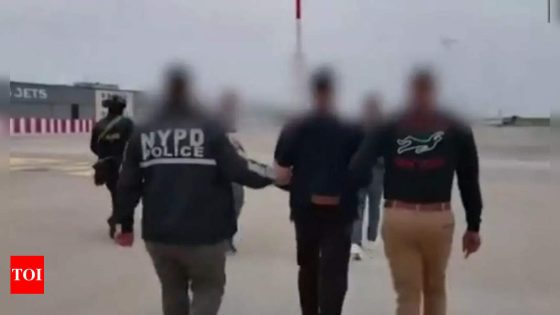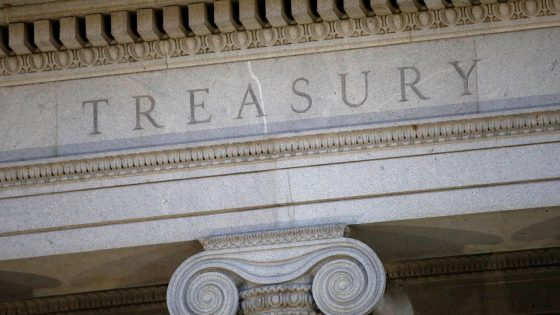Nikhil Gupta, the Indian national at the heart of a India-US diplomatic firestorm over an alleged foiled plot to kill a Khalistan separatist, was extradited by Czech Republic to US last week, pushing the case back into limelight after the lull that preceded Indian elections.
Gupta allegedly hired a hitman – at the instance of an Indian govt official — to murder Gurpatwant Singh Pannun on US soil.Pannun is a Sikh separatist of dual US-Canadian nationality. According to US justice department, Pannun is an American national and political activist who was targeted for exercising a “quintessential American right: his freedom of speech”. Gupta has pleaded not guilty.
The Czech justice ministry announcement about Gupta having been extradited coincided with the arrival in India of US NSA Jake Sullivan, the White House point person leading the efforts to bring to justice the Indian official who allegedly masterminded the plot. The main purpose of Sullivan’s visit was to undertake a review, along with his Indian counterpart Ajit Doval, of the initiative on critical and emerging technology (iCET). However, his arrival was preceded by an interesting chain of events.
Gupta’s extradition was approved by Czech authorities on June 3, a day before results of Lok Sabha elections were declared in India. It was only 11 days later, and just three days before Sullivan’s visit, that Gupta was flown to US from Prague on a special flight.
These disclosures were made by Czech justice minister Pavel Blazek on the day Sullivan landed here. The same day, a group of Democrat senators in US wrote to secretary of state Antony Blinken seeking a stronger response over the alleged Indian involvement in the plot.
These developments saw the murder-for-hire cast a shadow over Sullivan’s engagements here, even though both sides took the Fifth on whether the issue was raised in the talks. The media coverage focused more on the Pannun case than the iCET talks that had the two sides pledging action to dismantle regulatory barriers against strategic technology cooperation. Sullivan had no media interaction during his visit, a rarity for a top US official. Even without that, the sequence of events leading up to the visit, by design or plain coincidence, foregrounded the Pannun plot, as Washington seeks action against the India-based conspirators.
There’ll likely be more pressure on New Delhi in the coming months to act against the Indian official who has already been identified in a Washington Post report. US justice department sees Gupta’s extradition as a vital step towards justice and has said it won’t tolerate attempts to silence or harm US citizens. Indian govt formed a committee in Nov to probe the US allegations but it has so far not made any of its findings public. This may become untenable as Joe Biden administration itself comes under renewed pressure to seek accountability from India.
A group of Democrat senators led by Jeff Merkley, who is also a senior member of the Senate Foreign Relations Committee, wrote to Blinken calling for a strong diplomatic response in light of “credible allegations” about the involvement of an Indian official in the plot. They want a clear message sent to India that there will be consequences for such behaviour. With US elections still some distance away, it may be too early for India to think in terms of waiting out the storm. The Pannun case is also not just a one-off. India is facing similar allegations by Canada for the murder of another Khalistan separatist while an Australian media outlet recently claimed to have uncovered how Indian spies targeted Sikh separatists in Australia, a report that India Friday said was full of blatant untruths.
While it may look like the relationship is in for a bumpy ride, it’s unlikely the two countries will allow their partnership for “global good” to be stymied by the Pannun issue. A mature and nuanced India-US relationship, marked by what foreign minister S Jaishankar calls structural soundness, should be able to sail through a few blips, if handled carefully.
This is reflected in how – unlike the situation between India and Canada – both sides have quietly worked together in the Pannun case without descending into a public slanging match. Jaishankar has said US, unlike Canada, doesn’t defend extremism in the name of freedom of speech. It’s also significant Sullivan didn’t speak about the case in public, which he was widely expected to, during his visit. There will, of course, be apprehensions here about US using the case as a bargaining chip to extract concessions on contentious issues, especially those in the economic sector.
Both sides also need each other – US, for a bulwark against an increasingly assertive China in the Indo-Pacific, and India, for access to cutting-edge technology crucial for its own growth and security. Sullivan’s visit saw both sides reaffirming their commitment to iCET, the next big thing that might act as a guiding framework for further development of ties.
That said, India will have to find a way to address US’ quest for justice in the case. The issue has been raised at the highest level and, going by the tone and tenor of the voices emerging from US, not least the justice department, the Biden administration will have no option but to pursue the matter with India to its logical conclusion, which is the criminal prosecution of those who allegedly orchestrated the plot from India. As the senators warned in their letter to Blinken, any attempt at scapegoating – like only blaming a rogue operative – may not work.
Gupta allegedly hired a hitman – at the instance of an Indian govt official — to murder Gurpatwant Singh Pannun on US soil.Pannun is a Sikh separatist of dual US-Canadian nationality. According to US justice department, Pannun is an American national and political activist who was targeted for exercising a “quintessential American right: his freedom of speech”. Gupta has pleaded not guilty.
The Czech justice ministry announcement about Gupta having been extradited coincided with the arrival in India of US NSA Jake Sullivan, the White House point person leading the efforts to bring to justice the Indian official who allegedly masterminded the plot. The main purpose of Sullivan’s visit was to undertake a review, along with his Indian counterpart Ajit Doval, of the initiative on critical and emerging technology (iCET). However, his arrival was preceded by an interesting chain of events.
Gupta’s extradition was approved by Czech authorities on June 3, a day before results of Lok Sabha elections were declared in India. It was only 11 days later, and just three days before Sullivan’s visit, that Gupta was flown to US from Prague on a special flight.
These disclosures were made by Czech justice minister Pavel Blazek on the day Sullivan landed here. The same day, a group of Democrat senators in US wrote to secretary of state Antony Blinken seeking a stronger response over the alleged Indian involvement in the plot.
These developments saw the murder-for-hire cast a shadow over Sullivan’s engagements here, even though both sides took the Fifth on whether the issue was raised in the talks. The media coverage focused more on the Pannun case than the iCET talks that had the two sides pledging action to dismantle regulatory barriers against strategic technology cooperation. Sullivan had no media interaction during his visit, a rarity for a top US official. Even without that, the sequence of events leading up to the visit, by design or plain coincidence, foregrounded the Pannun plot, as Washington seeks action against the India-based conspirators.
There’ll likely be more pressure on New Delhi in the coming months to act against the Indian official who has already been identified in a Washington Post report. US justice department sees Gupta’s extradition as a vital step towards justice and has said it won’t tolerate attempts to silence or harm US citizens. Indian govt formed a committee in Nov to probe the US allegations but it has so far not made any of its findings public. This may become untenable as Joe Biden administration itself comes under renewed pressure to seek accountability from India.
A group of Democrat senators led by Jeff Merkley, who is also a senior member of the Senate Foreign Relations Committee, wrote to Blinken calling for a strong diplomatic response in light of “credible allegations” about the involvement of an Indian official in the plot. They want a clear message sent to India that there will be consequences for such behaviour. With US elections still some distance away, it may be too early for India to think in terms of waiting out the storm. The Pannun case is also not just a one-off. India is facing similar allegations by Canada for the murder of another Khalistan separatist while an Australian media outlet recently claimed to have uncovered how Indian spies targeted Sikh separatists in Australia, a report that India Friday said was full of blatant untruths.
While it may look like the relationship is in for a bumpy ride, it’s unlikely the two countries will allow their partnership for “global good” to be stymied by the Pannun issue. A mature and nuanced India-US relationship, marked by what foreign minister S Jaishankar calls structural soundness, should be able to sail through a few blips, if handled carefully.
This is reflected in how – unlike the situation between India and Canada – both sides have quietly worked together in the Pannun case without descending into a public slanging match. Jaishankar has said US, unlike Canada, doesn’t defend extremism in the name of freedom of speech. It’s also significant Sullivan didn’t speak about the case in public, which he was widely expected to, during his visit. There will, of course, be apprehensions here about US using the case as a bargaining chip to extract concessions on contentious issues, especially those in the economic sector.
Both sides also need each other – US, for a bulwark against an increasingly assertive China in the Indo-Pacific, and India, for access to cutting-edge technology crucial for its own growth and security. Sullivan’s visit saw both sides reaffirming their commitment to iCET, the next big thing that might act as a guiding framework for further development of ties.
That said, India will have to find a way to address US’ quest for justice in the case. The issue has been raised at the highest level and, going by the tone and tenor of the voices emerging from US, not least the justice department, the Biden administration will have no option but to pursue the matter with India to its logical conclusion, which is the criminal prosecution of those who allegedly orchestrated the plot from India. As the senators warned in their letter to Blinken, any attempt at scapegoating – like only blaming a rogue operative – may not work.
Source Agencies




